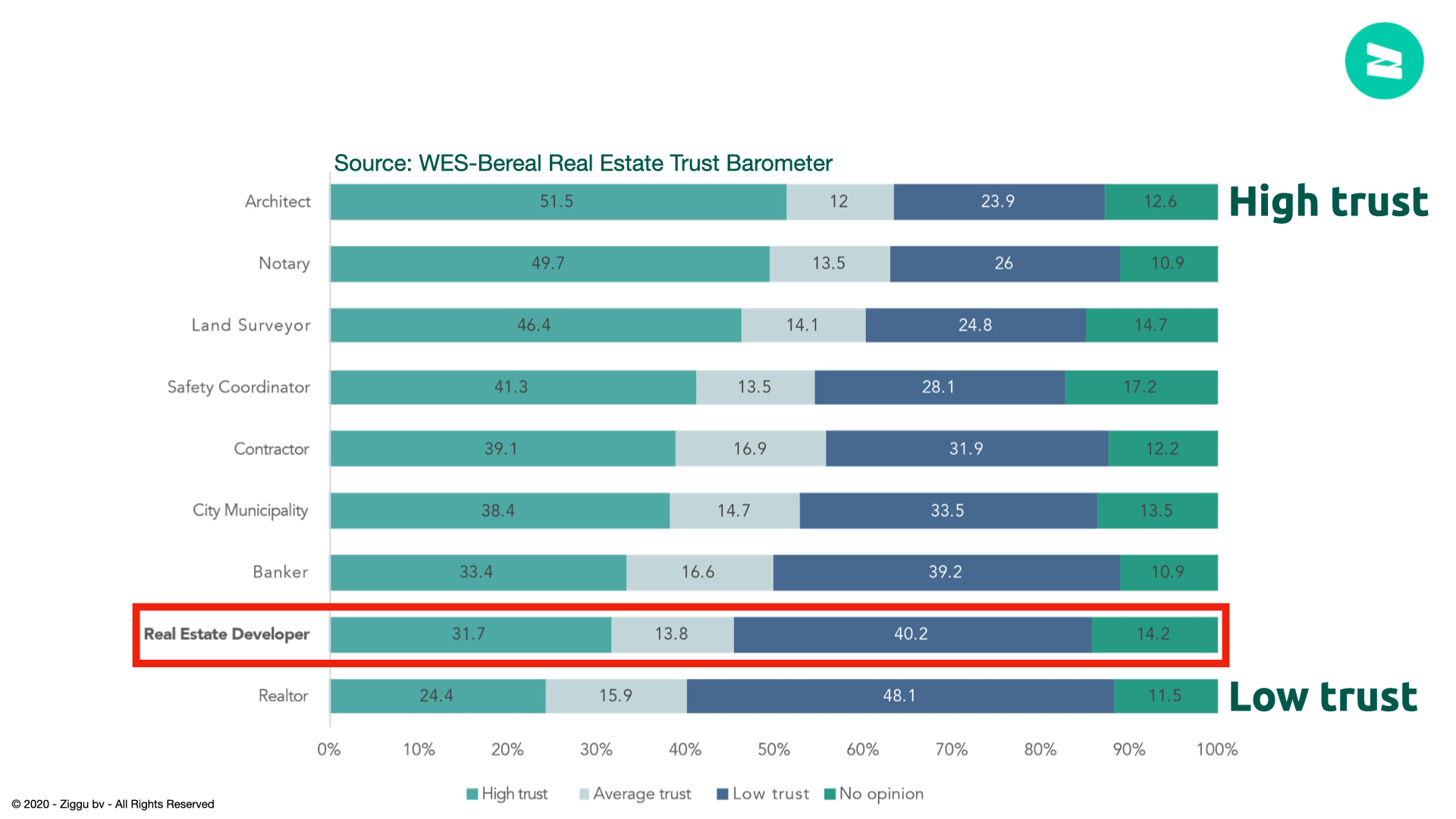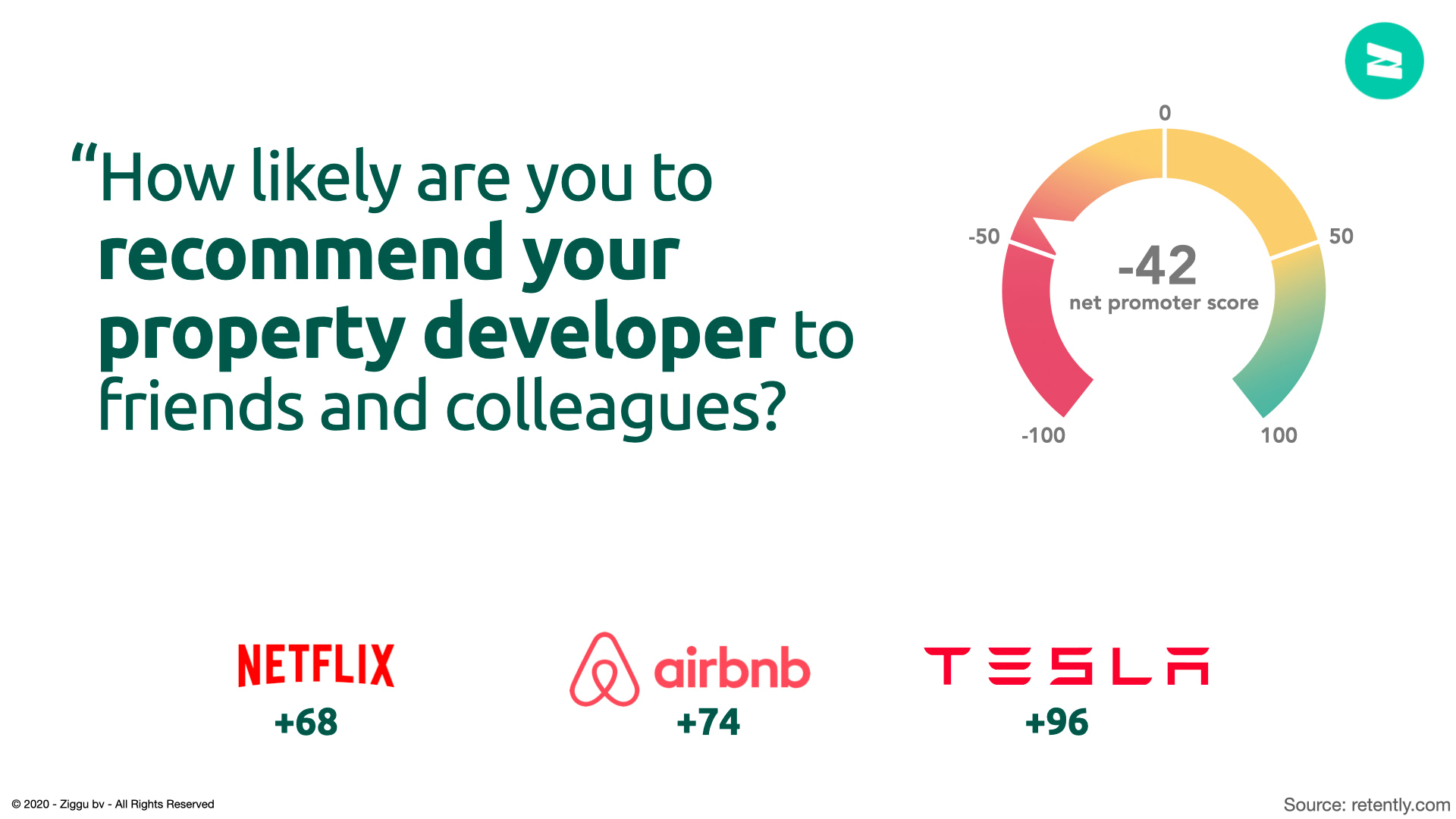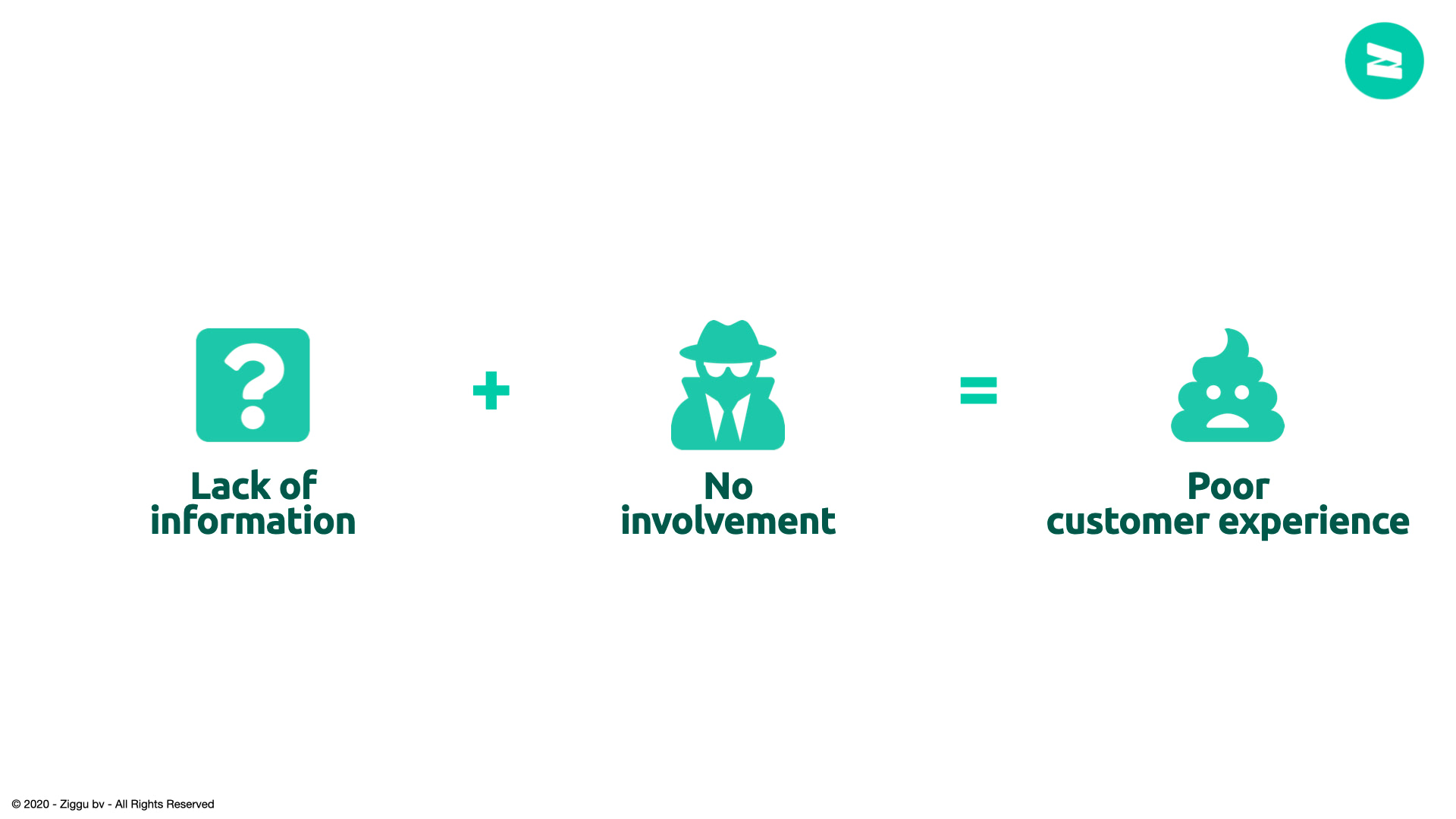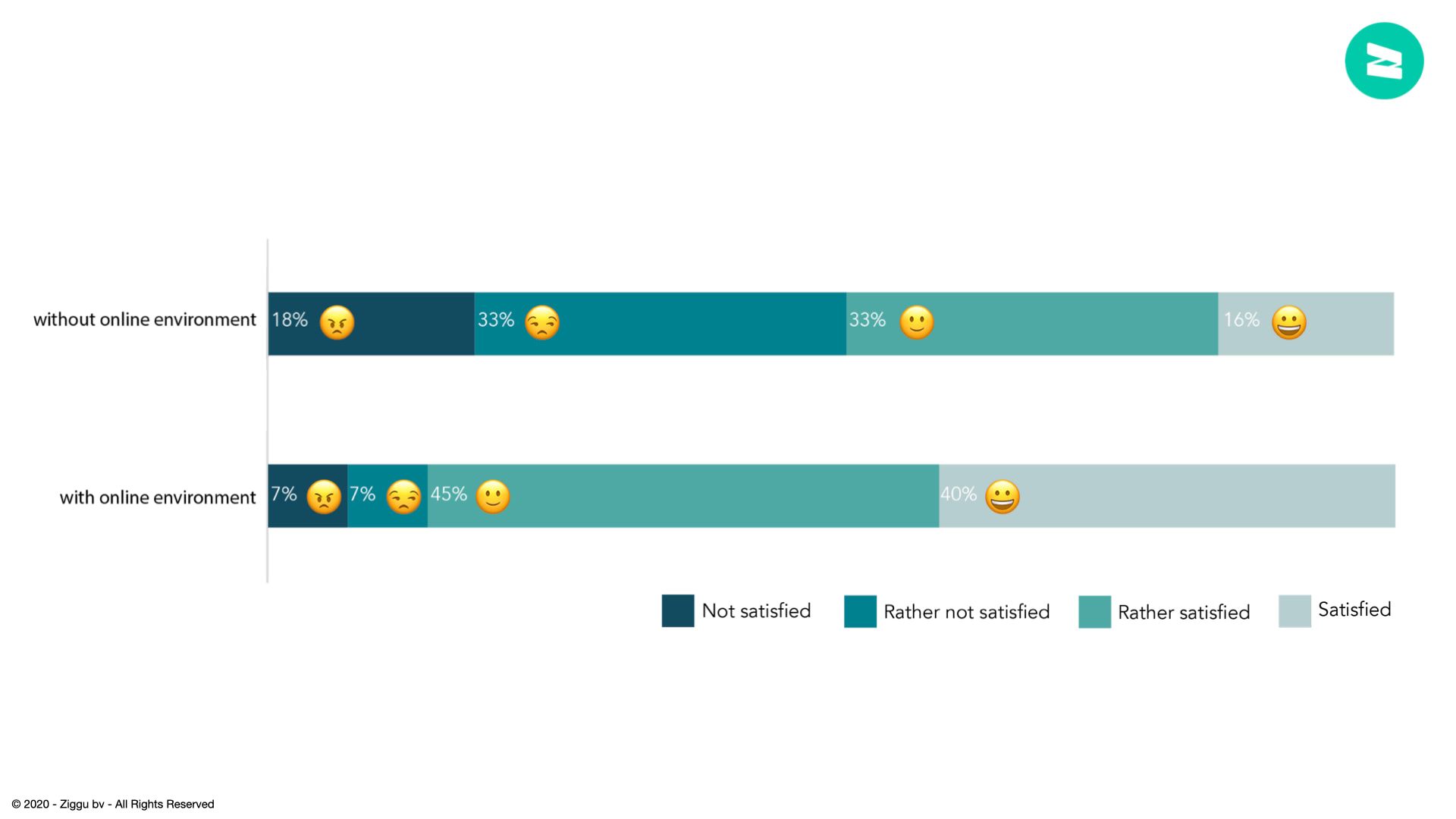The Pizzafication of the Real Estate sector
How does the average citizen looks at each and every stakeholder in the building process. What does the Real Estate Barometer tells us this year?
How does the average citizen looks at each and every stakeholder in the building process. What does the Real Estate Barometer tells us this year?

The publication of the Real Estate Barometer has become a thing to look forward to each year. WES Research and Bereal list, among other survey results, how the average citizen looks at each and every stakeholder in the building process. How much do they trust them?

At Ziggu, of course, we mostly pay close attention to the ranking of property developers and home builders. Unfortunately, we always end up finding them at the bottom of the list. People tend to place little trust in property developers… but why?
To understand the underlying reasons, we did our own survey (in projects that were not managed on Ziggu). More than 400 homebuyers who bought off-plan took the time to answer questions about their complete customer journey. From discovery to aftercare.
You’ll find detailed results in this post. Here, we’ll go over the key pain points.
First of all, the (in)famous Net Promoter Score®.
How likely were these homebuyers to promote their property developer to others? Turns out, not likely at all. A score of -42(*) is nothing to write home about. Compare that to the scores of some top brands out there: +68 for Netflix, +74 for Airbnb, and an incredible +96 for Tesla.

A red logo, yes, but I bet that’s not their great differentiator.
These companies don’t sell products per se. It’s all about the experience surrounding the purchase: convenience, personalisation, engagement. And even in the case of Tesla, it’s a digital experience for the most part.
(*) Net Promoter Score = % Promoters (score 9 & 10) – % Detractors (0-6). In our survey we had 8% promoters, 50% detractors.
These homebuyers listed many different reasons for giving such a low score. There was room for improvement in every aspect of the customer journey. Starting with the handover from sales to the customer service team, for example. A lot of promises made by the first were lost in translation by the latter.
As happy as they were with the end result of their finished house or apartment, most homebuyers weren’t pleased with the building process itself. Once they signed the purchase agreement, they were left in the dark. Homebuyers felt like they weren’t involved in the process. A lack of information after their big purchase created an overall unhappy sentiment for homebuyers.

So no matter how great the concept is, how cool the location or how innovative the architecture of these building projects: the customer experience – or lack thereof – had the biggest impact on whether or not a homebuyer would become a brand ambassador.
Some questions in the survey focused more on HOW property developers communicated with homebuyers. What truly amazed us though is this: at the moment our survey was taken (2017), only 20% of developers had an online communication environment. In some rare cases, this online environment was a custom-built customer platform. But mostly, ‘online’ just meant a Facebook group or a dropbox folder.

However, any kind of online environment had an impact on the satisfaction rates regarding communication. More precisely: the survey results showed an increase of 36% in overall satisfaction! So, moving away from one email after another and instead centralizing all that information on a dedicated platform – however basic – did pay off.

Remarkable, but then again…not that surprising.
Imagine you’re on the train and all of a sudden, between 2 train stations, your train comes to a hold. Stand still. Nothing.
If you’re anything like me, you start to get nervous. What’s going on?
At that point, the lack of information is the issue. Once the conductor announces over the intercom that you’re waiting 10 minutes for another train to pass, you feel fine again. Uncertainty was the problem.
That’s exactly the feeling our homebuyers had. Often, property developers are afraid to share too much. Especially when construction is running behind a bit. Nobody likes surprises or unexpected events, but we forget that people understand that things don’t always go according to plan.
One of the homebuyers from our survey actually came up with an even better analogy than the train. She wrote: “How come I can better follow up on my 15 euro pizza via an app than my house, which cost me 300.000 euros?”
And there we have it. This is the main reason behind the overall poor customer satisfaction rates.

At Ziggu we started calling this “the pizzaffication of the real estate sector”.
Homebuyers compare experiences between completely different sectors. So when they make the biggest purchase of their lifetime, they expect to be in the know from beginning to end. They want to be more involved and get all the information. We have to go digital to meet that level of convenience, both on the developer’s side as the homebuyer’s.

An integrated customer journey is the new norm.
Ten years ago, you would have gotten away with not having a company website. Can you imagine that today? No, you’re almost obsolete as a company if you’re not on page 1 in the search results.
We’re seeing the exact same trend with customer platforms. An extension of your website of some sort, where customers can find more information, more value, whenever and wherever they want.
Your website is merely the facade for something bigger: a digital environment for a continuous, uninterrupted customer journey. Here, homebuyers find all their documents, decisions they have to make, papers to sign, answers to their questions, and potentially a lot more.
A digital sidetrack with all the touchpoints between you, them, and other stakeholders.

With the corona crisis, that digital sidetrack has become even more important. At Ziggu, we’ve seen a tremendous increase in daily activity on our platform since the first lockdown. Customers, property developers, and suppliers could just continue working together as usual.
Having a digital track in your customer journey is more than something you ‘need to do’ for your homebuyer. In a remote world, it not only boosts your satisfaction rates but equally so your internal efficiency.
By asking your customers to digitally confirm a decision regarding their kitchen, you’re able to automate a ton of work for yourself. No longer updating statuses and numbers in Excel sheets. No longer forwarding emails and documents to suppliers and contractors. No more checking 2 – 3 times if everyone has received the final version of each plan and order.
Offering a digital track in the customer journey benefits your company too. Not only on a day-to-day basis, but in the future as well.
Your customer platform keeps you connected with your growing customer base, even after the delivery of the project. You’re no longer the company that merely built their house, you’re the brand that is inherently connected to their home.
